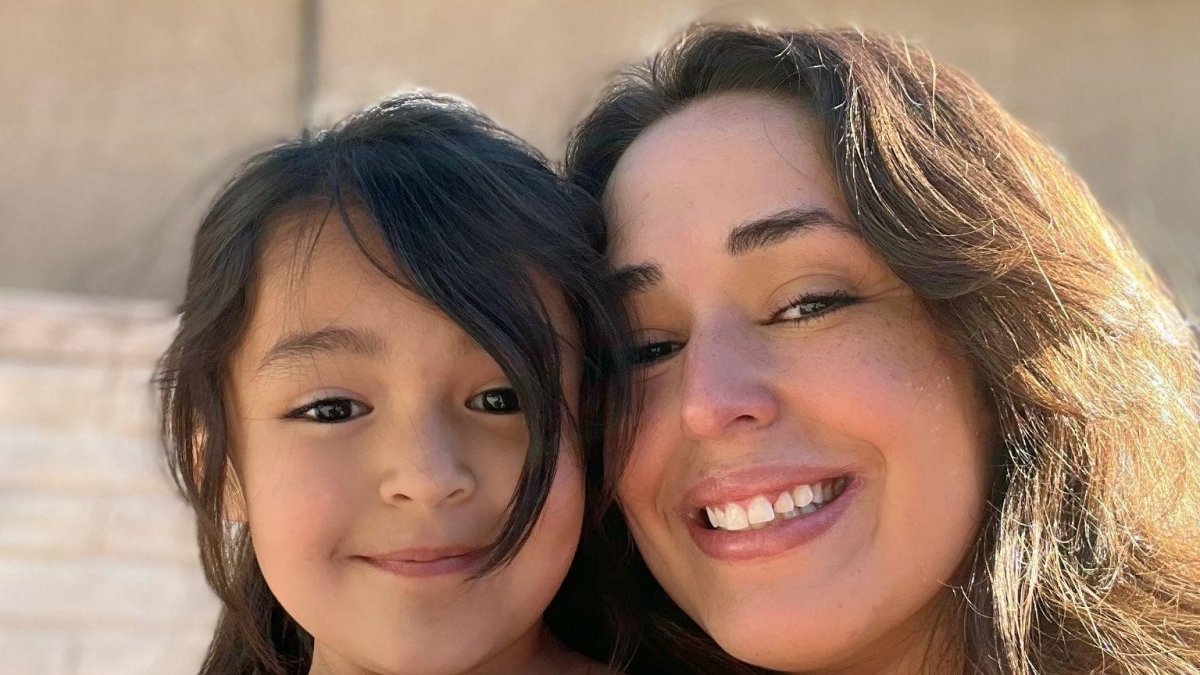College of Health Solutions grad draws motivation from her daughter

College of Health Solutions graduate Magen Martinez (right) with her daughter Diana. Photo courtesy Magen Martinez
Editor’s note: This story is part of a series of profiles of notable fall 2023 graduates.
Magen Martinez, who is graduating with a master’s degree in biomedical diagnostics, is also a full-time laboratory operations manager at Tricore Reference Laboratories in New Mexico.
But before those two things, she is a single parent to her daughter Diana, which she says has helped her thrive in pursuit of her higher education.
Assistant Teaching Professor Michael Donovan described Martinez as “quite simply the most impressive BMD student that I have had the pleasure of instructing in my time at ASU.”
When talking about her daughter, Martinez said, “Her and I are a team, and I would like to showcase that to her and the world whenever possible.”
Diana was Martinez’s main motivation for pursuing a master’s degree.
With a bachelor’s degree in applied mathematics and chemistry already under her belt, Martinez wanted a master’s degree to go with her current job. ASU Online provided the right program at the right time.
Martinez said that ASU Online contributed to her success because, with such a busy schedule, she didn’t have time to travel to a campus for in-person classes.
“I've had to put a lot of time into it,” said Martinez. “But it hasn't prevented me from going to work every day, it hasn't prevented me from being a mother and raising my daughter and taking care of her, so that's been really wonderful.”
Below, Martinez elaborates on her time with ASU and her plans post graduation.
Question: What was your “aha” moment when you realized you wanted to study the field you majored in?
Answer: I knew I wanted a master's degree because I felt like having a master's is really important when you're looking at the research and development side of things.
Q: Why did you choose ASU?
A: I did really want a master's degree, so when I found this one online, it was sort of perfect because it's what I do, working in the clinical laboratory. I specialize in assay development and bringing up new testing, and creating lab-developed tests.
Q: What’s something you learned while at ASU — in the classroom or otherwise — that surprised you or changed your perspective?
A: The ethics of medicine and the ethics of information and how it's shared and how it's used. I don't know that it changed my mind, but it opened my mind to those conundrums that I don't think I've ever really thought about before — things like genetic testing and what are the goods and the bads of that. How it could be something that could be misused and how it could be something that's life-changing. How do we be stewards of that information and medicine to make sure that it is doing what it needs to do?
Q: Which professor taught you the most important lesson while at ASU?
A: It was definitely Dr. Donovan. (He taught me) to mostly just ... believe in myself and have confidence in the work that I'm doing, that it's recognized as being hard work, and to not stop pushing.
Q: What’s the best piece of advice you’d give to those still in school?
A: My biggest piece of advice is to never give up, and believe in yourself. I did not do well in undergrad because I wasn’t focused on school the way I should have been. I had a very low GPA. In fact, I only got into the graduate program because of excellent references and real-life experience. I was still placed as probationary acceptance for the first year. I promised myself that I would do better this time, and it was certainly a hard promise to keep at times. I didn’t give up trying, because I knew I could do this if I put my mind and heart into it.
Q: What was your favorite spot for power studying?
A: On the couch, under a blanket, with “Hamilton” playing in the background.
Q: What are your plans after graduation?
A: Work in the laboratory and continue moving forward in that direction.
Q: If someone gave you $40 million to solve one problem on our planet, what would you tackle?
A: Ways for people across different cultures to communicate with each other and actually understand each other. I think that's where most of our problems come from. We have different languages and different cultures. If there was a way to create programs so we could understand each other better, I do think the world would be a much better place
Story by Aidan Hansen, communications assistant, College of Health Solutions
More Health and medicine
Leading the way in wellness: ASU highlighted in The Princeton Review's 2025 Mental Health Services Honor Roll
Being a college student isn’t easy — navigating new routines, people and places can be a challenge, especially if the right…
New Indigenous health dashboard offers robust database for scholars
By Nicole Greason and Kimberly Linn A team at Arizona State University’s College of Health Solutions and …
College of Health Solutions program doing its part during Salute to Service
It wasn’t always easy for Marine veteran Chuck Hale when he first returned to civilian life. But he’ll never forget the help he…